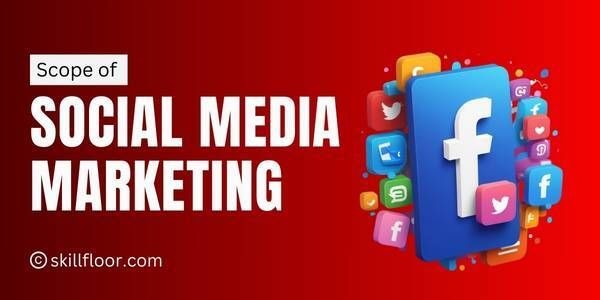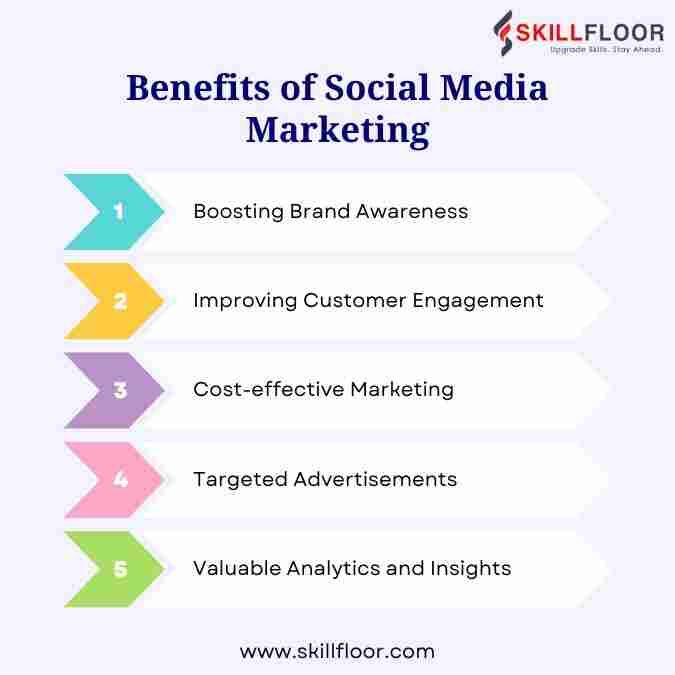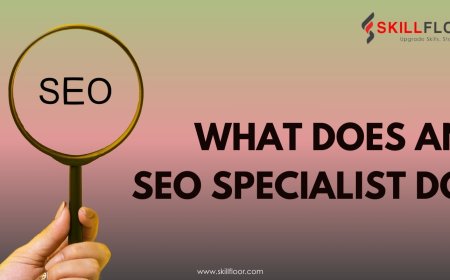Scope of Social Media Marketing
Explore the vast scope of social media marketing. Learn how to leverage social platforms for brand awareness, engagement, and growth.

social media marketing plays a crucial role in any digital marketing strategy. The scope of social media marketing isn't just about posting updates or sharing content on various platforms. It's a way for businesses to connect with their audience, build relationships, and create brand awareness. By sharing engaging content and participating in conversations, companies can foster a loyal community around their brand. Integrating social media with content marketing allows businesses to tell their stories in ways that resonate with people, making it an effective tool to reach a broader audience and drive traffic to their websites.
Beyond content sharing, the scope of social media marketing also includes understanding and analyzing the performance of social media activities. By using insights and analytics, businesses can measure engagement, track customer interactions, and see how their campaigns are performing. This helps in refining strategies and making data-driven decisions. Platforms like Facebook, Instagram, and LinkedIn offer detailed tools to segment audiences and customize messages for different groups. As social media marketing blends with SEO and PPC advertising, it opens up even more opportunities for businesses to connect with their customers and achieve their marketing goals
Each social media platform caters to different groups and interests, allowing businesses to target specific audiences effectively. For example, LinkedIn is ideal for B2B marketing and professional networking, while Instagram is great for visually appealing content and working with influencers. Knowing the unique features of each platform helps businesses make the most of social media marketing.
Benefits of Social Media Marketing
1. Boosting Brand Awareness
Social media marketing increases your brand's visibility. Regularly publishing high-quality content and connecting with followers enables businesses to attract a larger audience and establish themselves in their sector. Building brand recognition is an important step in establishing trust and credibility with potential clients.
2. Improving Customer Engagement
Social media platforms allow for direct communication with customers, which fosters a sense of community and loyalty. Responding immediately to questions, delivering personalized messages, and uploading entertaining content can all help to boost customer satisfaction and retention.
3. Cost-effective Marketing
Social media marketing costs less than traditional marketing channels. Most platforms allow for free account setup and posting, with optional paid advertising to increase reach. This makes social media an accessible alternative for businesses of all sizes seeking exposure without a significant expense.
4. Targeted Advertisements
Paid adverts on social media platforms can be targeted with great precision. Businesses can personalize their adverts based on demographics, interests, habits, and past encounters. This exact targeting guarantees that marketing efforts are directed to the most relevant audience, boosting the chances of conversion.
5. Valuable Analytics and Insights
Social media marketing provides precise analytics that allows firms to monitor the efficacy of their posts, adverts, and overall strategy. These insights are useful for fine-tuning marketing campaigns, determining audience preferences, and calculating return on investment.

Integrating Social Media with Digital Marketing
To fully realize the potential of social media marketing, it should be seamlessly integrated into a broader digital marketing strategy. Here are some ways to do this:
1. Content Marketing: Content is the cornerstone of social media marketing. Creating valuable, informative, and entertaining content can help increase traffic and conversions. Blog articles, videos, infographics, and user-generated content are all excellent ways to engage consumers on social media.
2. Search engine optimization (SEO): Social network profiles and content can help SEO efforts. Sharing content with relevant keywords and connections to your website can boost search engine rankings. This combination of social media and SEO improves online exposure and promotes organic traffic.
3. Email Marketing: Combining social media and email marketing can increase your reach. Social media may help you increase your email list by advertising sign-up forms and special deals. Similarly, email newsletters can increase traffic to your social media pages and encourage more interaction.
4. Pay-Per-Click (PPC) Advertising: Social media sites provide effective PPC advertising solutions. These advertisements can complement other digital marketing initiatives, such as Google Ads, to provide a holistic paid advertising plan. PPC marketing on social media can result in rapid traffic and leads.
5. Influencer Partnerships: Working with influencers allows you to broaden your reach and gain a reputation. Influencers have a loyal following and can effectively market your company to their target demographic. Choosing influencers that share your brand's values and target audience is critical to successful collaborations.
What are the Future Trends in Social Media Marketing?
As technology and user behavior evolve, so does the potential of social media marketing. Here are some emerging trends to keep an eye on:
1. Increasing Importance of Video Content
Video content is increasingly popular on social media. Platforms such as YouTube, Instagram Reels, and TikTok are quickly growing. Investing in interesting and shareable video content might help you grab your audience's attention.
2. Growth of Social Commerce
Social media sites are rapidly integrating e-commerce functionality. Businesses can now sell their items directly via social media postings and advertisements. This trend, referred to as social commerce, simplifies the purchasing process and enhances customer experience.
3. Adoption of Augmented Reality (AR) and Virtual Reality (VR)
AR and VR technologies are becoming increasingly widely used and integrated into social media platforms. These immersive experiences provide unique opportunities to interact with your audience and differentiate your business.
4. Popularity of Ephemeral Content
Ephemeral content, like Instagram Stories and Snapchat Snaps, is fleeting but highly engaging. This form of content generates urgency and can result in quick engagement. Using ephemeral content helps to keep your audience interested and engaged.
The scope of social media marketing is broad and continues to expand as the digital landscape changes. Businesses can increase their growth potential by understanding its benefits and integrating social media with other digital marketing activities. Staying current with developing trends and always tweaking your social media approach can help you remain competitive in this dynamic sector. Social media marketing is a powerful tool that, when used strategically, can alter your digital presence and deliver tangible commercial benefits. Accept the power of social media marketing and watch your brand thrive.






























































